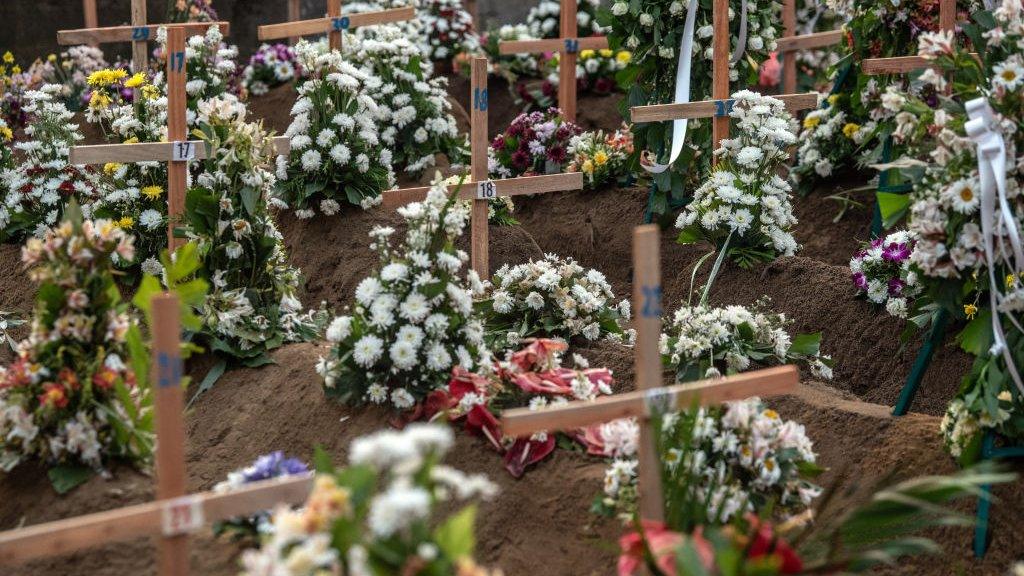US woman wrongly identified as Sri Lanka attack suspect
- Published
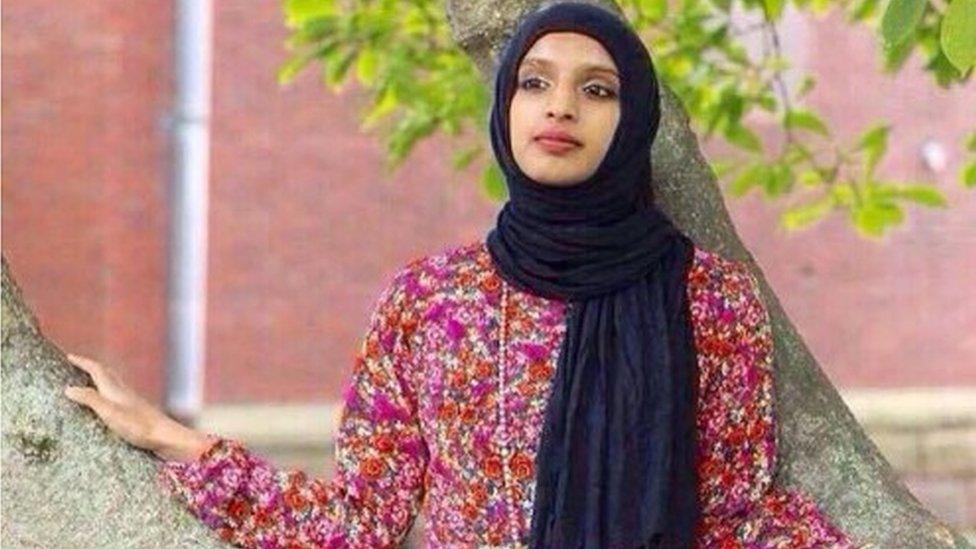
Amara Majeed is a US activist fighting anti-Muslim stereotypes
Sri Lankan police have apologised after they wrongly identified a US woman as a suspect in the Easter Sunday attacks.
Amara Majeed is a Muslim activist and author who wrote a book, titled The Foreigners, to combat stereotypes about Islam.
"I have this morning been FALSELY identified by the Sri Lankan government as one of the ISIS Easter attackers in Sri Lanka," she tweeted.
"What a thing to wake up to!"
Around 253 people died and hundreds were injured in the Sri Lanka attacks, where suicide bombers struck several hotels and churches.
A photograph of Amara Majeed was released by Sri Lankan authorities identifying her as a suspect linked to the bloodshed.
The name attached to the picture was Abdul Cader Fathima Khadiya - but the picture was of Baltimore-born Ms Majeed, whose parents are from Sri Lanka.
"This is obviously completely false and frankly, considering that our communities are already greatly afflicted with issues of surveillance, I don't need more false accusations and scrutiny," Ms Majeed wrote on Twitter.
Allow X content?
This article contains content provided by X. We ask for your permission before anything is loaded, as they may be using cookies and other technologies. You may want to read X’s cookie policy, external and privacy policy, external before accepting. To view this content choose ‘accept and continue’.

"Please stop implicating and associating me with these horrific attacks," Ms Majeed urged. "And next time, be more diligent about releasing such information that has the potential to deeply violate someone's family and community."
Sri Lankan police confirmed the error in a statement, saying "the individual pictured is not wanted for questioning".
Tensions high as police hunt continues
Nine people are suspected of carrying out the deadly attacks, and dozens have been arrested. Tensions remain high.
The authorities blamed a local Islamist extremist group, National Thowheed Jamath (NTJ), soon after the blasts but said the bombers must have had outside help.
The Islamic State group said it was behind the attacks but provided no evidence of direct involvement.
Fighting stereotypes about Muslims
Activist Ms Majeed made headlines aged 16 when she founded The Hijab Project, which encourages Muslim and non-Muslim women to try wearing the garment and share their experiences on social media.
In 2015 she was featured in the BBC's 100 Women, an annual project which highlights inspirational and exceptional women.
During Donald Trump's presidential campaign, she wrote an open letter to Mr Trump, external accusing him of being "a demagogue who is capitalizing on Americans' fear and paranoia".
"I've made it my mission to use my life to undo the hatred that people like you create, and eradicate stereotypes about Muslims," the then-student at Brown University wrote.
- Published26 April 2019
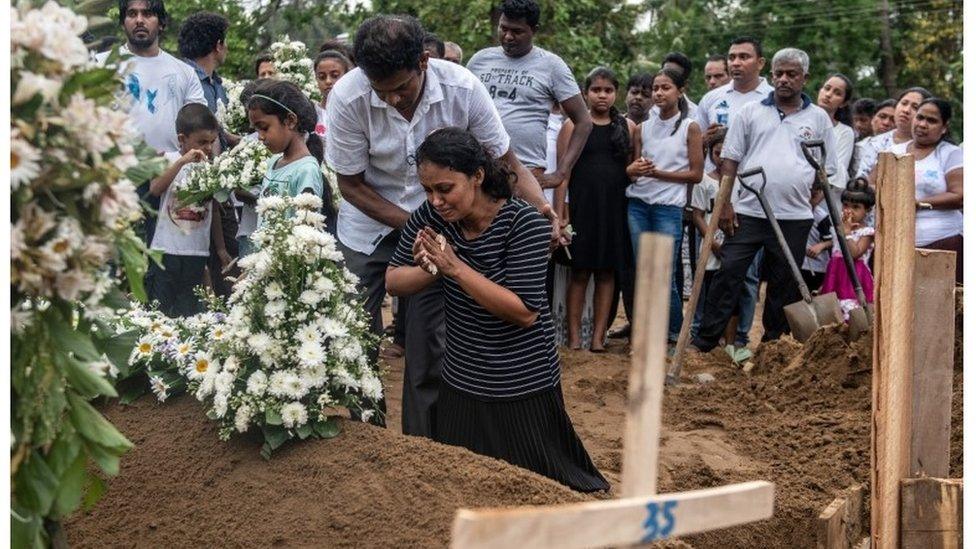
- Published28 April 2019
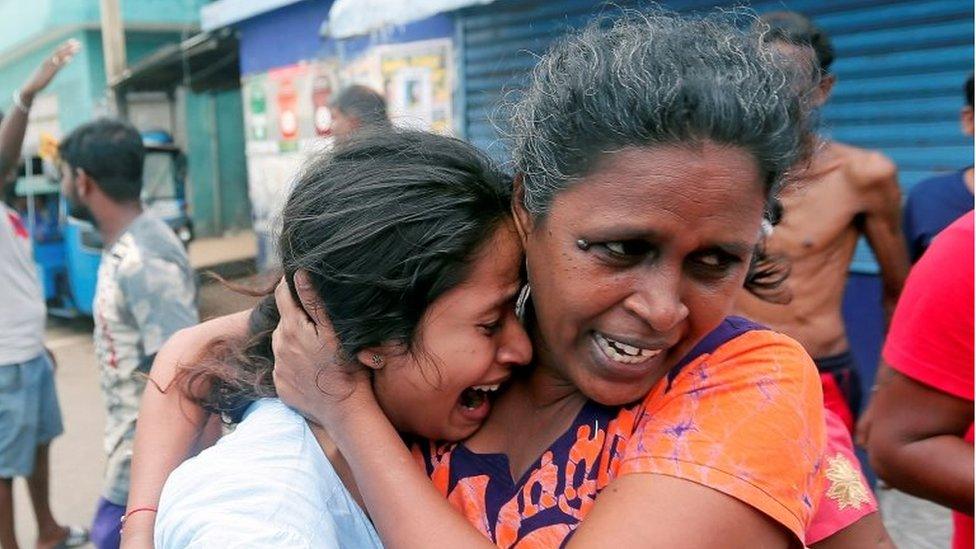
- Published26 April 2019
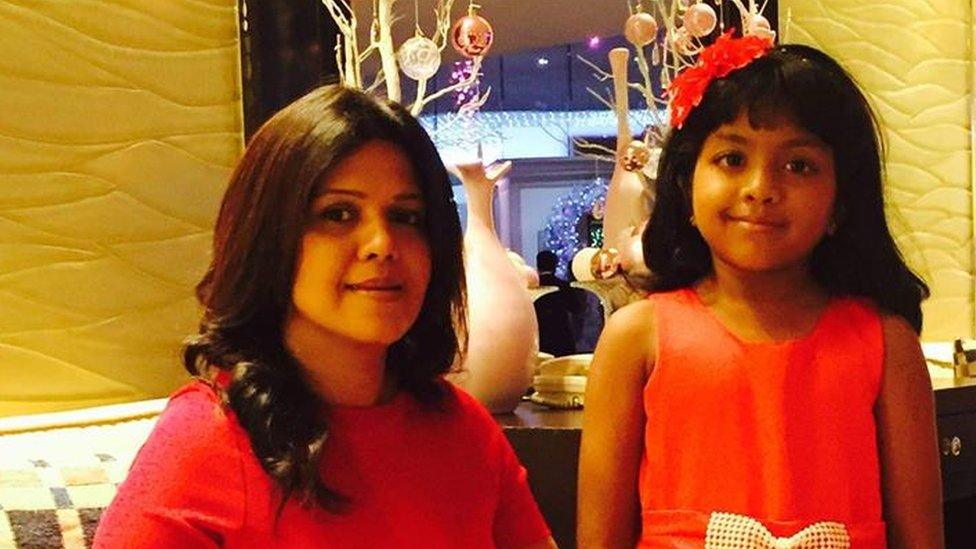
- Published25 April 2019
